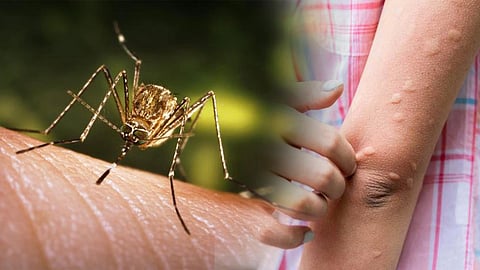
- Home
- Live Blog
- Breaking News
- Top Headlines
- Cities
- NE News
- Sentinel Media
- Sports
- Education
- Jobs

CORRESPONDENT
SHILLONG: Health and Family Welfare Minister Dr. M. Ampareen Lyngdoh on Tuesday informed the Assembly that cases of Japanese Encephalitis (JE) in Meghalaya have seen a sharp rise, climbing from 89 in 2023-24 to 147 in 2024-25.
Presenting district-wise figures, Lyngdoh said East Khasi Hills recorded a surge from 10 cases to 29, while West Jaintia Hills rose from 34 to 49. East Jaintia Hills also reported a significant jump from 5 to 22. Ri-Bhoi remained steady at 25, South West Khasi Hills reported a slight dip from 5 to 4, and South Garo Hills registered its first case this year. Districts like West Garo Hills, East Garo Hills, and North Garo Hills reported no cases in both years.
Lyngdoh explained that higher vaccination coverage in Garo Hills—ranging from 80% to 95%—has played a vital role in keeping cases low, compared to East Khasi Hills (71%) and Ri-Bhoi (82%). “Vaccination is key to prevention, and we urge citizens to take it seriously,” she stressed.
The minister said the JE vaccine is part of the universal immunization program for children aged 9-11 months and 16-23 months, and universal coverage is being recommended in high-prevalence areas.
To combat the rise in cases, the government has designated labs for JE surveillance, is considering labs in every district, and is sponsoring candidates to address manpower shortages, including microbiologists. Awareness campaigns and interdepartmental meetings are also being carried out to strengthen prevention.
Lyngdoh assured the House that the government is working hard to fight the disease by enhancing surveillance, testing, and awareness, while also breaking misconceptions around vaccination. “The department is combating this disease, and we are attending to it,” she said.
Also Read: Opposition bows out of Deputy Speaker race in M’laya Assembly
Also Watch: